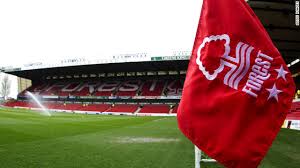April 2 – Nottingham Forest have reported a pre-tax profit of £12.1 million for the 2023-24 financial year, driven by £100 million in player sales. Despite recording an operating loss of £73.3 million, the club’s strong transfer market activity – including the £47.5 million sale of Brennan Johnson to Tottenham Hotspur—converted financial red into black.
Revenue surged to a record £189.6 million, up from £154.8 million the previous year, reflecting the financial muscle of participation in the Premier League. However, administrative expenses also climbed sharply from £203.1 million to £250.2 million, largely due to “rising player wages, bonuses, and amortisation costs”.
A sizeable chunk of the club’s profitability was fuelled by player departures, with key exits including Orel Mangala (£20 million to Lyon), Odysseas Vlachodimos (£20 million to Newcastle), and Moussa Niakhaté (£27 million to Lyon), on top of Johnson’s deadline day transfer to Spurs. These sales not only bolstered Forest’s finances but also reinforced their strategy of leveraging the transfer market to stay compliant with financial regulations.
With the club narrowly avoiding relegation last season and facing penalties for breaching the Premier League’s profitability and sustainability rules, further player sales may be necessary to maintain financial stability, though finances will improve if the club can qualify for next season’s Champions League.
Sponsorship and commercial income saw a “significant” increase. In a statement, the club attributed this to the global exposure and funding benefits of Premier League status.
In a move underscoring his long-term commitment to the club, owner Evangelos Marinakis converted £82.2 million of debt into equity, strengthening the club’s financial foundation. The club also highlighted that the market value of its first-team squad exceeds its reported value, making player transfers a viable liquidity source if required.
Beyond financial manoeuvring, Forest say they remain committed to on-field competitiveness and long-term growth. The accounts back this up – confirming ongoing investment in the first-team squad, academy, and the redevelopment of the City Ground, a key project aimed at reinforcing the club’s Premier League ambitions.
While transfer activity has balanced the books for now, Forest’s long-term financial health will depend on sustained top-flight status, continued commercial growth, and strategic investment – both in players and infrastructure.
Contact the writer of this story, Harry Ewing, at moc.l1745523084labto1745523084ofdlr1745523084owedi1745523084sni@g1745523084niwe.1745523084yrrah1745523084

